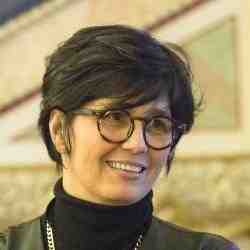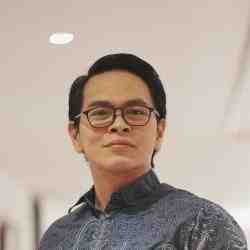Introduction
As French society grows increasingly multicultural, the threat of community isolation is more and more a reality. Recognizing the risks associated with such a binary approach to diversity, Marc Cheb Sun has initiated media campaigns, including the development of Respect Magazine and Dynamique Diversité, to generate and implement new practices with respect to diversity for individuals as well as in firms and institutions throughout France.
The New Idea
In 2004 Marc established the brand Respect through the launch of Respect Magazine: The first French periodical aimed at 18 to 30 year-olds that sought to mirror the spectrum of diversity within French society. The magazine features articles on urban music, sports, and societal issues, and encourages debates on religion, impoverished suburban areas, and discrimination; among other topics. Its mission statement reflects the values of the brand: “Freeing our imaginations from the bonds of colonialism and learning to live together.” Through this publication, Marc has successfully united his readership around the value of respect for each others differences, rather than focus on community or religious identifications.
In creating this magazine, Marc sought to ensure that it remained faithful to its identity and relevant, and most importantly, that it maintained a strong relationship with its loyal readership. As such, he constantly strives for innovative approaches to keep readers interested and to stay ahead of trends. The future of the brand however, lies in encouraging the growth of its special relationship with the constituencies that Marc and his teams have successfully attracted to the Respect concept, including large companies, associations, and institutions, such as schools, courts, and the police.
Marc’s core values of honesty, transparency, and political independence, have earned the brand much recognition and support, and after two years, he expanded his work by launching the Dynamique Diversité Association which seeks to further train people in the Respect approach.
The Problem
In recent history, French society has evolved and been reshaped by successive waves of immigration. According to the National Institute of Demographic Studies (INED), as of 1999, close to 14 million French citizens (23 percent of the population) had one immigrant parent or grandparent. The country has always upheld a “republican model of integration,” but the encouraged blindness to differences (as exemplified by the refusal to keep ethnically-based statistics) is capable of negating the value of those differences. As a result, these efforts have not effectively reduced discrimination among ethnically diverse populations.
In France, there is a tendency to classify issues within a very simple dichotomy of racist or anti-racist topics. This framework, however, creates a stark division among people, categorizing them as either those who can be assimilated or those who cannot. The consequences of such a national view towards diversity are detrimental for French society on the whole, fostering discrimination, segregation, and subordination. The 2005 riots best illustrated how disgruntled young people have become as a result of this destructive approach to diversity.
While activists have rallied for this cause, they are not well-known among the general public, and their expertise is too narrow to lead a broad, inclusive movement. Politicians and associations have worked to resolve this problem as well, but each focuses on singular aspects of the problem, such as lack of respect for women, Blacks or Jews, among others. Few, however, consider the issue from the positive and global viewpoint of how to promote diversity for the betterment of society.
The Strategy
Marc’s approach towards fighting discrimination and reinventing the public’s perception of diversity issues uses the media as an agent of social change, and works on multiple levels. At the heart of his plan is Respect Magazine: A sleek quarterly about culture and society aimed at youth. The articles in each issue of Respect are held to high professional standards, to ensure their relevance, and as a result, many of the studies that have been published in the magazine have been echoed by the general press. Overall, it addresses topics of interest to young people in France, including urban culture and sport, as well as youth-police confrontations, job discrimination, the place of women in society, and France’s colonial past; while avoiding stereotypes and promoting tolerance.
The innovation in Marc’s idea is the manner in which he uses the media as a means of uniting diverse people. Through Respect Magazine, he works to bring institutional players, grassroots associations, companies, and youth from impoverished neighborhoods together around common interests and concerns.
Marc publishes 30,000 copies of Respect Magazine and estimates its readership at 180,000 people. To have wider exposure, he has partnered with the free newspaper Métro (with 900,000 copies in circulation), where a full-page piece by Respect is published monthly. Also, by helping schools establish their own newspapers, Marc hopes to give a voice to youth.
Marc’s multilevel approach to promote his message does not stop with print media and collaborative efforts. He is currently working to develop a TV show on diversity with content similar to that of Respect Magazine, and wants to create an internet portal to point young people towards areas of interest to them, such as employment and culture.
The Person
Marc was born in 1958 in the suburbs of Paris, and is of Italian-Egyptian origin. From a young age he found himself rejected from French society, and although he was interested in literature, at 14 years of age, his school recommended that he study mechanics.
Before the fall of the Berlin Wall, Marc went to Berlin to learn German for two years. During this time, he joined the anti-racist movement created in the wake of violent attacks on foreigners. It was then that he began writing in the German press, and created the magazine DIPIPOL, which dealt with acts of violence against foreigners.
Many years after his return to France, Marc became more active in his efforts to use journalism to discuss crucial social issues. After launching Respect to much acclaim, Marc was appointed on the board of directors of the Agence Nationale pour la Cohésion Sociale et l’Egalité des Chances (ACSE). In 2007, he was appointed to the Commission du Fonds “images de la diversité” created after the 2005 riots. The Fund is managed by ACSE and the National Center for Cinematography with the goal of supporting filmmaking and audiovisual pieces dealing with diversity and equal opportunity in France; it currently supports over 500 projects.



